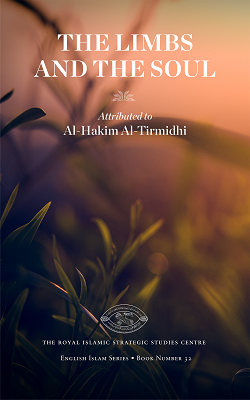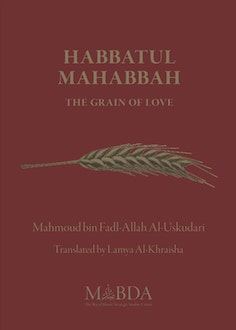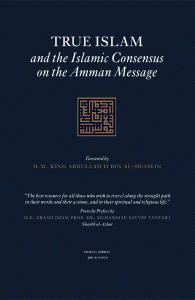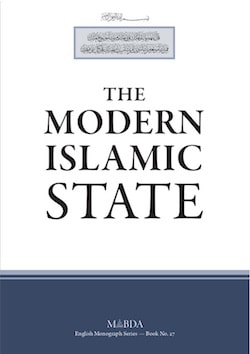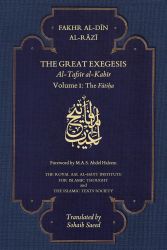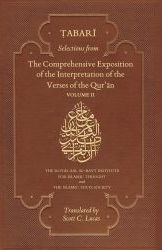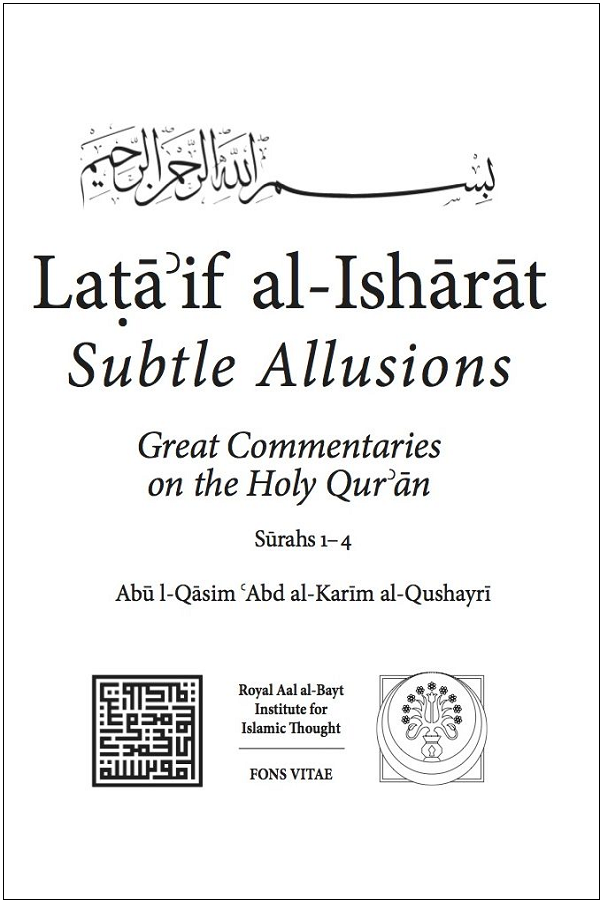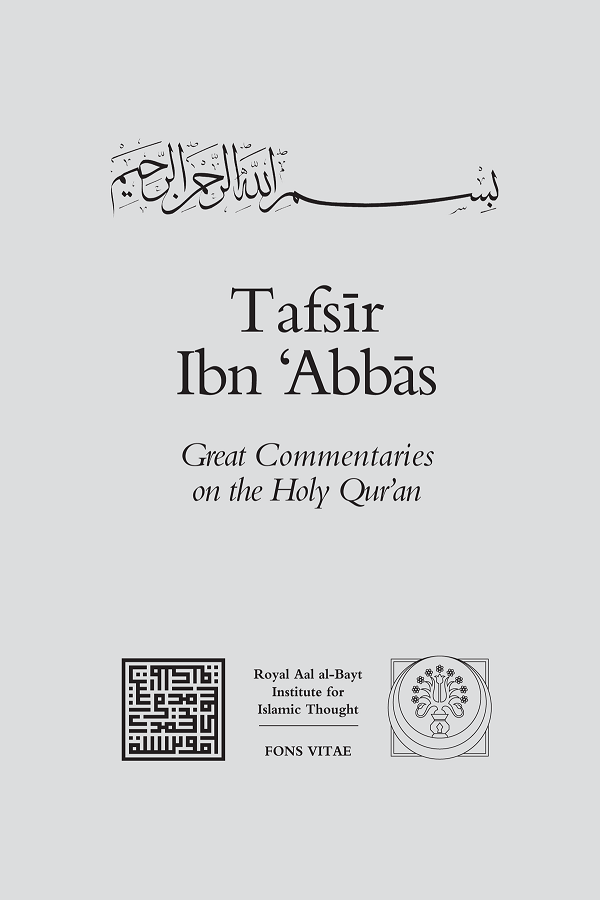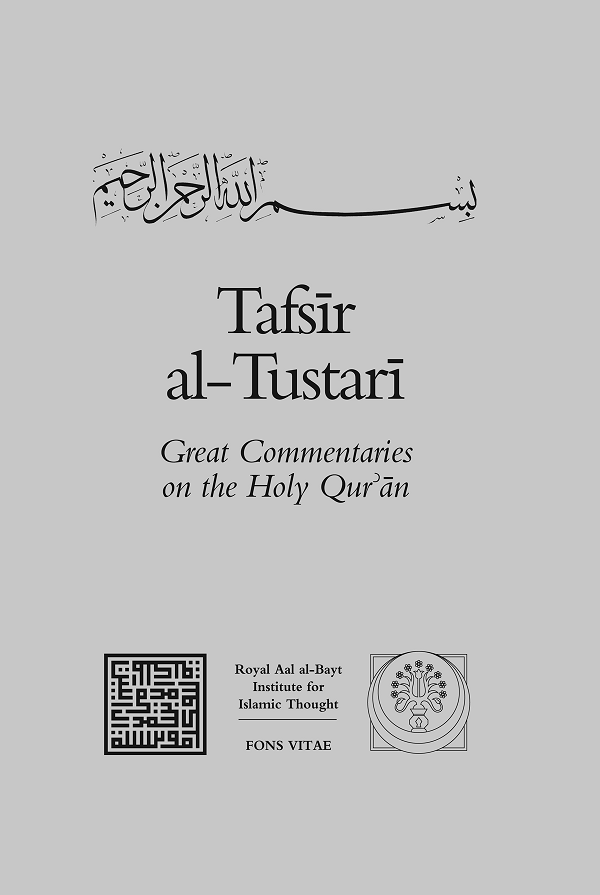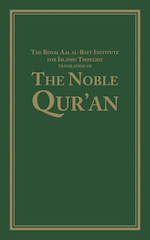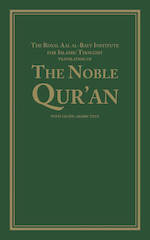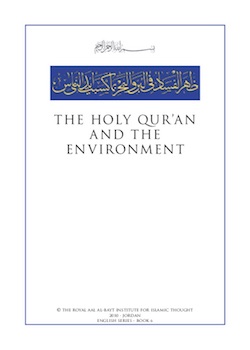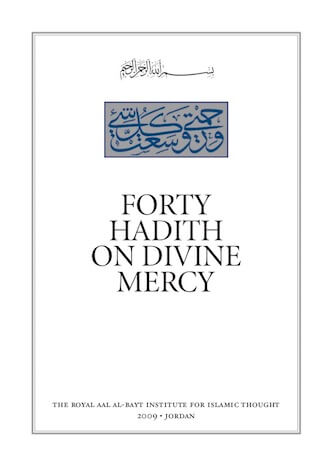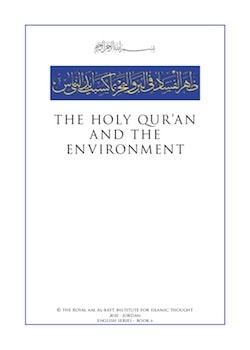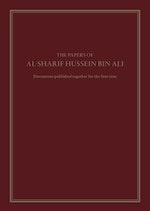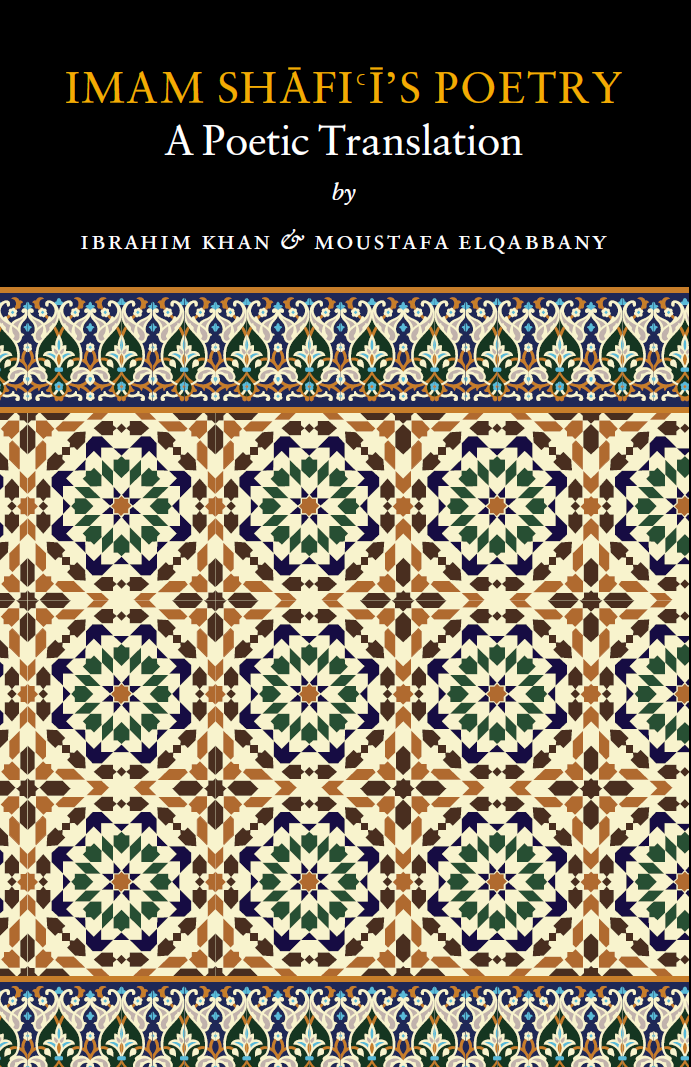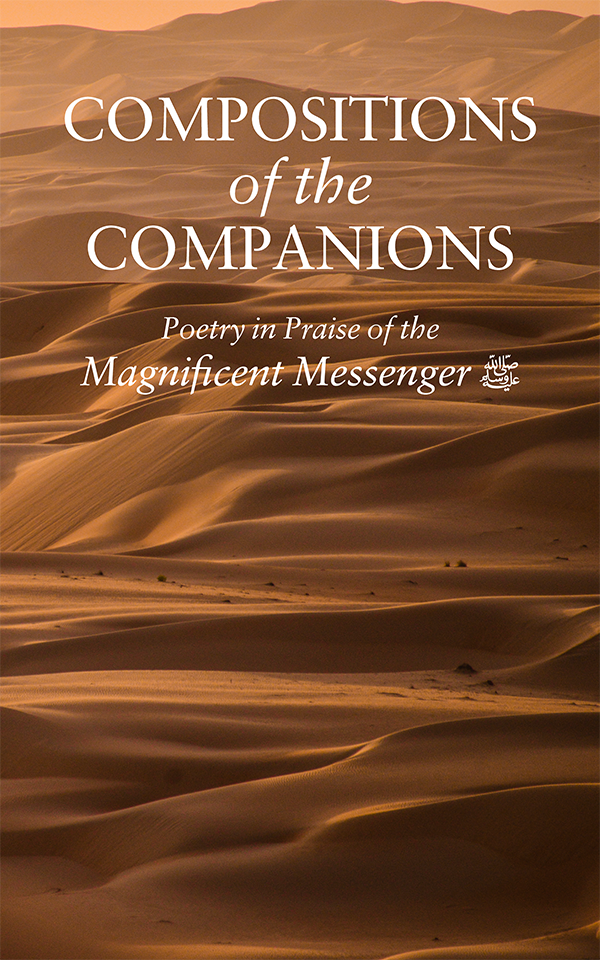Is Islam as Violent as it is Vilified?
If, according to Sir Francis Bacon, "a prudent question is one-half of wisdom," what would a 'non-question' warrant itself when quantified in terms of wisdom?
Are Judaism and Christianity as Violent as Islam? inquires Raymond Ibrahim in the summer 2009, volume XVI of Middle East Quarterly. The very title sets a misleading tone from the onset, as it presupposes a subjective answer, debasing the reader's intellect and the topic's integrity at once. Under the guise of a hypothetical academic question, the very usage of the simile, "as violent as Islam," pre-supposes that Islam is inherently violent and that Islam has set for itself the highest bar as "most violent religion." Without much room left for an answer, the question, thus, becomes defunct. But then again, abusus non tollit usum; despite all the biases and inaccuracies typical of anti-Islamic rhetoric, the chance for a retort against misinformation would not be possible.
Ibrahim begins his arguments against Islam by revisiting the views of respected scholars such as Karen Armstrong, John Esposito and Philip Jenkins who tend to reject the claim – and rightly so – that the use of violence is exclusive to Islam and that Jewish and Christian scriptures are themselves "as riddled with violent passages" as the Qur'an, if not more so. To him, the reminder that "those who live in glass houses should not be hurling stones" often abruptly puts an end to a more illuminating Orwellian discussion Ibrahim would like to see take place, as if to suggest: "all religions are violent, but some - hint hint - are more violent than others."
The relativist view's primary purpose is – indeed – to shed light on the oft-overlooked fact that the Qur'an is not the only scripture to contain a call to so-called violence. In the aftermath of 9/11 and the "War on Terror", scholars like Esposito and Armstrong would take it upon themselves to shed light on this simple truth in hopes of quelling key misconceptions about Islam as exacerbated by the fearmongering agendas of Western mainstream media. It is important to note, however, that the relativist view is not employed to “apologize” for Islam, nor water-down any attempt at a serious discussion about the use of violence therein. Rather, linking Islam with other religions should serve as an introduction to a complex comparative dichotomy, and an invitation to understand at a deeper level, Islam's position on the use of violence - the when's, where's and how's. Just as Ibrahim propagates, studying the Islamic sources on the use of force more closely (provided they are in their appropriate context and devoid of preconceived bias) might just reveal that not all theologies are on equal playing fields after all.
History vs. Theology?
Ibrahim regards the prevalent views of the likes of Armstrong, Jenkins or Esposito as those that tend to "confuse history and theology by conflating the temporal actions of men with what are understood to be the immutable words of God." That is, according to him, Judeo-Christian history is violent, whereas Islamic theology commands violence, as if to imply that a so-called Judeo-Christian history is circumspect from scriptural influence – an untrue claim at best. Further, by contrasting theology and history, Ibrahim thereby equates 'theology' with an archaic law that binds its followers to a hypnotizing clasp. Or to be fair, perhaps this is just Ibrahim's definition of "the Islamic kind" – or 'bad kind' – of theology. Surely not all theologies are bad. Conversely, to juxtapose history and theology also implies that a "Judeo-Christian" history better than an "Islamic" one: surely not all histories are good.
Ibrahim then states that accounts of violence in, say, the Hebrew Scriptures were merely descriptive of certain, standalone incidents whereas the verses of the Qur'an are instantaneously prescriptive "wherecertain aspects of Islamic violence and intolerance have become standardized in Islamic law and apply at all times." Ibrahim thereby asks the reader to give historical immunity to verses such as those found in the New Testament, in numbers 31:17 where Moses says (of the Midianite captives, whose menfolk the Israelites have already slaughtered): “Now therefore kill every male among the little ones, and every woman who has known a man intimately." Or here- where Samuel 15:1-9 tells the story of the Prophet Samuel commanding King Saul to eradicate the Amalekites as follows: "Slay both men and women, infant and suckling, ox and sheep, camel and donkey."
Ibrahim uses historical immunity to make even texts like Saint Augustine’s cognite intrare ("lead them in" – i.e. "force them to convert") seem a little "less violent" and reasons the recurrent acts of bloodshed as caused by the ancient Israelites, the Nazis or the Crusaders by claiming them time-specific, rather than scripturally-inspired. Does this imply that the only world religion with theological influence over its adherents is Islam? Most theologians – even millions of devout Christians and Jews would find this implication outrageous. More importantly, to what extent do these recurrent acts of violence committed by Jews or Christians are impervious to evolving into dogmas or civilization trends themselves? No matter how vigorously Ibrahim attempts to prove that Judaism and Christianity are devoid of "theologies of hatred", he cannot rule out the fact that millions have fallen victims to Christian and Jewish religio-political violence. Whether the death tolls are theologically inspired or historically born becomes an unspeakably inept inquiry.
Islam and the Law of War
Indeed, history and theology are not mutually exclusive from a traditional Muslim perspective: Islamic history is not alien to the idea of reading religiously binding texts primarily within the context of a living and ‘evolving’ tradition. The importance of the Sunnah and the transmitted sciences (al-‘ulum al-naqliyyah) in Islamic law was thus necessary from the outset. Taken out of this context, Qur’anic verses become abstruse, abstract, and impenetrable for Ibrahim, or for anyone, who is indifferent to this tradition. Perhaps unintentionally, but such apathy bears the risk of being misled into thinking that a good part of Islamic history has come about in spite of the Qur’an, not because of it (Kalin, 2005 ).
There are three general rules to the Islamic law of war as derived from the Qur'an and the Sunnah: non-combatants are not legitimate targets; the fact of someone being non-Muslim does not make them a legitimate target of attack; Muslims are expected to live in peace with their neighbors whenever possible, and must respect treaties, but this never precludes the right to preemptive or responsive self-defense, otherwise known as jus ad bellum (Royal Aal Al-Bayt, 2007). In addition to having clear preconditions for war, Muslims are also expected to follow an extensive set of rules during times of war as found in the Qur'anic inscriptions and the Sunnah: "fight in the way of God against those who disbelieve in God! Do not act brutally! Do not exceed the proper bounds! Do not mutilate! Do not kill children and hermits!"(Ibn Kathir, 190).
The ethics of the use of violence in Islam are therefore not seen as the root of everything injustice, but repulsion therefrom:
O ye who believe, be upright for God witnesses injustice; and let not hatred of a people cause you to be unjust. Be just — that is closer to piety (Qur’an 5:8).
Let not the hatred of the people — because they hindered you from the Sacred Mosque — incite you to transgress. Help one another in goodness and reverence, and do not help one another in sin and aggression (Qur’an 5:2).
Significantly enough, Ibrahim's very reasoning against Islam's employment of a law for warfare – however misinformed in his outlook of it – is in fact one of Islam's most noble of assets. Anti-Islamic polemics have long deployed Qur'anic verses out of their context to prove a pre-conceived set of biases against Islam and its views towards the lesser Jihad, and even outright terrorist acts. From a traditional Muslim perspective though, Muslims are encouraged to maintain peace but are allowed to resort to force when the cause is just. Islamic Weltanschauung thus employs a legal approach to orchestrate the use of violence and ensure that the cause, timing and manner are legal. The rich tradition of the Islamic religious sciences seek not to pillage and corrupt the Earth, but enliven it with justice and peace, and serve as the antithesis to aimless, chaotic violence between people:
But seek the abode of the Hereafter in that which God has given you and neglect not your portion of the world, and be kind even as God has been kind to you, and seek not corruption in the earth; lo! God loves not corrupters (Qur'an 28:77).
Ignoring almost 140 other verses calling for peace with those who do not fight against Muslims, Ibrahim then resorts to referring to the so-called "sword verses" to portray the Qur'an as a pugnacious dogma of perpetual warfare and intolerance – the very same verses that extremists employ to sanction shedding innocent blood. Abusing the rules of classical Qur'anic interpretation, he then suggests that this verse alone is capable of abrogating no less than "200 more tolerant verses before it, including the no compulsion verse," even the one immediately following it at 9:6: "if any of the polytheists seeks asylum from you, grant them asylum until he hears the Words of God. Then convey him to a place of safety. This is because they are a people who do not know" (Qur'an 9:6). Escaping Ibrahim's proven unreliable scholarship, the 'no-compulsion' verse: "there is no compulsion in religion" (Qur'an 2:256), is not a command, but a statement of fact in that it takes the same grammatical form as "there is no god but God," thereby annulling the option of abrogation as a result of the "sword verse" (Royal Aal Al-Bayt, 2007).
The Encyclopedia of Islam or the age-old works of pioneer sociologist Ibn Khaldun – who, despite his epic contributions to the humanities, was also known for Arab supremacist tendencies – hardly do the "sword verse" justice. According to the classical Islamic tradition, this verse cannot be taken as a carte blanche to fight non-Muslims. It can only be applied to the specific polytheists who opposed the early Muslim community and threatened the very survival of Islam. As one authoritative jurisprudent Qadi Abu Bakr Ibn Al-‘Arabi of the 11th – 12th century CE writes:
"This verse is general regarding the polytheists, but is restricted by the Prophet’s prohibition of the killing of women, children, religious adherents, and non-combatants. But understood also are those who do not fight you nor are preparing to fight you or harm you. The verse actually means, “Slay the polytheists who are attempting to slay you" (Oliveti, 2006).
Ibrahim then claims that "Muslims were (and are) commanded to fight the people of the book" and supports this by citing out of its context – yet again – the "sword verse." By doing so, Ibrahim propagates a further distortion of truth. The People of the Book (Jews and Christians) are not, in fact, considered idolaters, but rather fellow monotheists. Regardless of this, ones religion does not justify a Muslim’s waging war against them – extremists would like to see verses like this one "abrogated":
Truly God defends those who believe. Truly God loves not every disbelieving traitor. Permission is given to those who are fought because they have been wronged. Surely God is able to give them victory – those who have been expelled from their homes unjustly only because they because they said: “Our Lord is God.” And if it were not that God repelled some people by means of others, then monasteries, churches, synagogues, and mosques, wherein the Name of God is mentioned much would surely have been pulled down. Verily, God will help those who help Him. Truly, God is powerful and mighty – those who, if We give them power in the land, they establish worship and forbid iniquity, And to God belongs the outcome of all affairs.
(Qur'an 22:38-41)
Islamic History in Perspective
Ibrahim's bias is evident more still as he says: "whereas first-century Christianity spread via the blood of martyrs, first-century Islam spread through violent conquest and bloodshed." For all his criticism towards the relativist view, Ibrahim’s usage of the word "martyr" most interestingly supports his counter-argument: in order to have martyrs, wars had to be waged and blood had to be shed from an opposing side. From a Jewish perspective, a Christian "martyr" was likely to have been viewed as a murderer; indeed, one man's martyr is another's conqueror. Perhaps this proves there is no room for religious zeal upon attempting to make an academically upright statement. And yet, uprightness of facts is clearly not Ibrahim’s strongest suit as he
haphazardly insists that Islam spread by conquest without so much as historical backing to support his claim. [1]
Let us revise our understanding of early Islamic history, shall we? When the Prophet witnessed the turn of hearts and conversion of the hostile Makkans after years of being attacked, tortured, oppressed, and sanctioned by them, he sent letters to the surrounding powers inviting them to professing worship of the One God – the same call that Moses made to Pharaoh eight centuries earlier. In response, the Christian Byzantine kings murdered the Prophet's messenger and sent his headless body back. The Persian Emperor became outraged and cursed the letter-bearer and told him that if it was not against international practice he would have him mutilated. On the other hand, the Egyptian Christian king sent a respectful 'no, but thank you' message, while the Ethiopian (Abyssinian) king voiced his will to embrace Islam, but only secretly – because he fearedthe backlash from the Church. Surely Ibrahim knows of another, more tolerant church at the time?
As a result of the above scenarios, the Prophet immediately sent armies to Byzantium, who showed the most aggression towards the newly-formed Muslim entity. A year later, after the death of the Prophet, his successor in authority over the Islamic state – and not in Prophet-hood – would send armies to the surrounding powers as a pre-emptive measure against their obvious pre-mediated hostility towards Islam (Suhaib Webb). Let us recall that in a pre-modern context, these powers were in a perpetual state of war; where one's religious identity was part-and-parcel of his political one. Indeed, the body politic of Muslims some 1420 years-ago, bears little resemblance to the Muslim body politic today. At the time, if a religious leader, emperor or king showed hostility to a certain group, then a peaceful diplomacy would not be possible until the political and religious authority of these lands were won over by force. In light of this, Ibrahim's usage of the Ridda wars as "evidence that even the Arabian Peninsula was subdued by great force and bloodshed" does not hold; the closest equivalent to the concept of Riddatoday would be treason – a crime punishable by death in the United States to this day.
The assertion that "Muslim invasions and atrocities against Christians were on the rise in the decades before the launch of the Crusades in 1096" are enfeebled by the fact that one can find numerous ancient churches and temples that can be traced back to long before Muslim rule in places like Jerusalem, Bethlehem and Nazereth. Demographically speaking, there are 30 million Arabs of Orthodox and Catholic denomination across the Middle East today whose roots can also be traced to before the Muslim domination of these lands; this is roughly 10% of the Arab world. In addition, no war was ever fought by the Muslims anywhere near Indonesia, the most densely populated Muslim country of close to 200 million Muslims, whose ancestors learned of Islam through traders and merchants from the Persian Gulf.
Without recognizing the legal injunctions of the Qur’an and the Sunnah concerning violence as part of a larger set of spiritual and moral principles, Ibrahim's attempt to read Islam as simply warmongering and intolerant deems itself at best, faulty. The ultimate goal of Islam is not "to bring the whole word under Islamic law", but to create a moral and just society in which individuals can pursue a spiritual life devoid of economic exploitation and the misuse of political authority. Without taking into account this larger picture, the secular and religious fundamentalists of Islam, Judaism and Christianity of our day fail to see how Islam advocates a positive concept of peace as opposed to a merely negative one – where war is merely absent.
Islam and Terrorism
Despite all the political and economic woes of many Muslim-majority countries, resorting to terrorism as a way out of the deadlock is never acceptable. And indeed, the "Islamic world is certainly not the only region in the world suffering under both internal and external pressures." (For one, the so-called Islamic world is not a region; it is compromised of multiple ones). Citing multiple examples of conflict zones the world over, Ibrahim paints a rather bratty view of Muslims and pleads that they stop blowing buildings and buses up merely because of a military occupation here or an authoritarian regime there. He says so as if to imply that the Muslim world is in a case of total chaos where random acts of terrorism occur on a daily basis while in fact, terrorism is actually mainly rampant in countries on the brink of civil war like Somalia or those who are directly affected by military occupation, such as Iraq and Pakistan (by way of neighboring Afghanistan) (State Department, 2008).
Ibrahim then wonders why "there are no records of practicing Christians, Buddhists, or Hindus crashing explosives-laden vehicles into the buildings of oppressive (e.g., Cuban or Chinese communist) regimes, all the while waving their scriptures in hand and screaming, "Jesus [or Buddha or Vishnu] is great!"" Notwithstanding the absence of Jews on his list – probably with Jewish extremist aggression against Palestinians in mind – by suggesting that practicing Muslims are more inclined to support or commit atrocities like 9/11, Ibrahim thus exemplifies the epitome of "War on Terror" agitprop. Echoing Pope Urban II, when George W. Bush met with Palestinian officials in the wake of the occupation of Iraq in 2005, he said:
"I am driven with a mission from God. God would tell me, 'George go and fight these terrorists in Afghanistan'. And I did. And then God would tell me 'George, go and end the tyranny in Iraq'. And I did" (MacAskill, 2005).
What warrants George W. Bush, a practicing Christian, more legitimacy in using God to justify violence over Al-Qaeda, for example, is the Iraq 'Crusade's' unfortunate state-sponsored status. Without as much as a scriptural verse to distort, George W. Bush would single-handedly attribute 103,535 (and counting) civilian casualties to direct Divine Ordinance. Is the ongoing war in Iraq purely "historic in nature" as well, Mr. Ibrahim?
Understanding The Sunnah in Context
Ibrahim attributes a perceived inherent culture of violence among all Muslims – especially those with a "natural inclination" to commit cold-blooded acts of terrorism – to basically one hadith. The hadith tells of an incident during the Ta'if raids where a conflict occurred during the night and the Muslim army asked the Prophet if it was permissible to launch the raids knowing there were women and children were among the opposing side, to which the Prophet is said to have responded, "they [women and children] are from among them." In the Islamic religious sciences, citing one hadithalmost never provides with a sufficient understanding of the variety of positions of Islamic law on any one issue. Like any person’s speech, hadiths have to be understood within the broader context of the Prophet’s teachings over the 23 years of his mission.
The majority of Muslim scholars agree that the women and children were not spared is because that particular attack would occur indoors at night, and the Muslims would not be able to distinguish men from women and children. This particular exemption by the Prophet was then annulled when he instructed Khalid bin al-Walid not to kill any women and children at the Battle of Hunayn and Taif. This report is found in the Sahih of al-Bukhari, the Sunans of Abu Dawud, al-Tirmidhi and Ibn Majah. It is the basis of the general principle among Muslim scholars that “it is not permitted to kill their women or children unless they fight you (La yajuzu qatl nisa’ihim wa la sibyanihim idha lam yuqatilu)"; incidentally – this principle poses itself as much more humane than the policies of any modern government known today (Brown, 2009).
The Sunna of the Prophet is therefore not meant to be an archaic and narrow way of life as it is portrayed in Ibrahim's words, but rather a lighting post for millions of Muslims over the centuries as they tread through the oft-unrelenting path of life: "and We have sent you Oh Muhammad not but as a mercy for all of mankind" (Qur'an, 21:107). With no Jewish equivalent for a sunna, "Jesus' sunna—as in "What Would Jesus Do?"" as "characterized by passivity and altruism" is juxtaposed with Muhammad's teachings, who in fact enjoined Jesus' best teachings, with just enough realism to recognize when unconditional passivity would deem more destructive than the evil in-question itself.
A Qur'anic verse tells us: "as for the messengers whom He has chosen, He guards them from the front and from behind – to make sure that they have delivered the messages of their Lord." (Qur'an 72: 27- 28) and in another, "We make no distinction among the Prophets of God" (Qur'an 2:285) – while Ibrahim is grateful that "neither Abraham's "white-lies," nor Jacob's perfidy, nor Moses' short-fuse, nor David's adultery, nor Solomon's philandering ever went on to instruct Jews or Christians." In the Islamic tradition, the Prophets – by virtue of their 'chosenness' from God – are regarded as sinless so that their message may be followed devoid of error or shortcomings. In a world plagued with calamity, immorality and injustice, Muslims look to the Sunnah to learn from countless Prophetic examples of chivalry, humility, kindness and mercifulness. Whereas Western popular culture propagates adopting "role-models" that aid in the idealization and globalization of a culture of violence and profanity, it would not be surprising to see a practicing young Muslim ask him or herself: "what would Jesus and Muhammad do?" rather than, say, "what would 'The Undertaker' or 'Snoop Dog' do?"
The Reality of Christian Violence
In a finally misleading note, Ibrahim concedes that the Crusades were merely a 'speed bump' in the way of a brighter future for in the Christian civilization's adherence to its creed's teachings: " if this is how Christians behaved—who are commanded to love, bless, and do good to their enemies who hate, curse, and persecute them—how much more can be expected of Muslims who, while sharing the same violent tendencies, are further commanded by the Deity to attack, kill, and plunder nonbelievers?" Before making such audacious claims, it may have been worthwhile for Ibrahim to take a look at factual illuminations on the history of violence. A recent study shows that the Christian civilization accounts for "14 instances of genocides with over 33 million deaths,122 as the total deaths derived from genocide are just over 50 million" – making the Christian civilization the most genocidal in human history (Sheikh, 2009). In addition, more than half of all major acts of political violence can be attributed to the Christian civilization. With a genocidal death-toll of under 4 million, the Islamic, Sinic and Buddhist civilizations thus account for the lowest death-tolls recorded (Sheikh, 2009).
While Muslims and Christians alike have betrayed their scriptures, Muslims have been more abiding to the teachings of their Book and Prophet. The cumbersome reality that man must cross paths with violence to champion just causes is not ignored in Islam, nor is it – by-and-large – abused by the majority of Muslims. With ample Qur'anic and prophetic teachings that command justice and praise peace, Islam and those true to it – 93% of the Muslim world think terrorism is never justifiable – (Gallup, 2008) are thus impervious from shedding as much blood as the Christian civilization has over the centuries. Does Christianity beget violence or does violence beget 'christianity' (with a small C) – its civilization and ethos?
Perhaps Ibrahim should reconsider boasting the absence of a Christian Weltanschauung for war, while the Islamic one he so haughtily condemns has clearly aided in keeping the genocidal imprint of the Muslim civilization at its lowest. "Are Judaism and Christianity as Violent as Islam?" – 33 million lifeless victims of genocide attributed to the Christian civilization from Serbs to Germans, Hutus, Tutsis, Circassians, Filipinos, Cathars, Slavs, Jews and Roma do not follow; could you kindly rephrase the question, Mr. Ibrahim?
Bibliography
The Holy Qur'an, Yusuf Ali translation.
Brown, Jonathan, in an e-mail message to the author regarding the Ta'if raids, December, 2009.
"Country Reports on Terrorism 2008." Department of State. Available from http://www.state.gov/s/ct/rls/crt/2008/index.htm. Internet; accessed 27 December 2009.
Esposito, John and Mogahed, Dalia. Who Speaks for Islam: What a Billion Muslims Really Think. Gallup Press, 2008.
Ibn Kathir, Tafsir Ibn Kathir , vv.2:190-193.
Kalin, Ibrahim. Islam and Peace: A Survey of the Sources of Peace in the Islamic Tradition, Islamic Studies 44:3 (2005), pp. 327-362.
MacAskill, Ewan. "George Bush: 'God Told me to End the Tyranny in Iraq'." The Guardian. http://www.guardian.co.uk/world/2005/oct/07/iraq.usa. Internet; accessed 27 December 2009.
Sheikh, Naveed S.. Body Count: A Quantitative Review of Political Violence Across World Civilizations. Lousiville: The Royal Islamic Strategic Studies Center, 2009.
The Royal Aal Al-Bayt Institute for Islamic Thought. Jihad and the Islamic Law of War, Jordan, 2007.
Vincenzo Oliveti, "The Myth of the 'Myth of the Moderate Muslim'", Islamica Magazine, number 15, 2006.
Webb, Suhaib. "'Did Islam Spread by the Sword'" August 2, 2008. http://www.suhaibwebb.com/blog/general/did-islam-spread-by-the-sword-abu-majeed/
[1] Here are some views by non-Muslim historians on the myth that "Islam spread by the sword": “History makes it clear however, that the legend of fanatical Muslims sweeping through the world and forcing Islam a the point of a sword upon conquered races is one of the most fantastically absurd myths that historians have ever repeated.” (by: De lacy O’Leary “Islam at the crossroads” pg.8) and, “The more important factor for the spread of Islam is its (just) religious law (shariah) which was designed to cover all manifestations of life” (Franz Rosenthal, “Political thought in Medieval Islam” pg. 21 Cambridge Press).


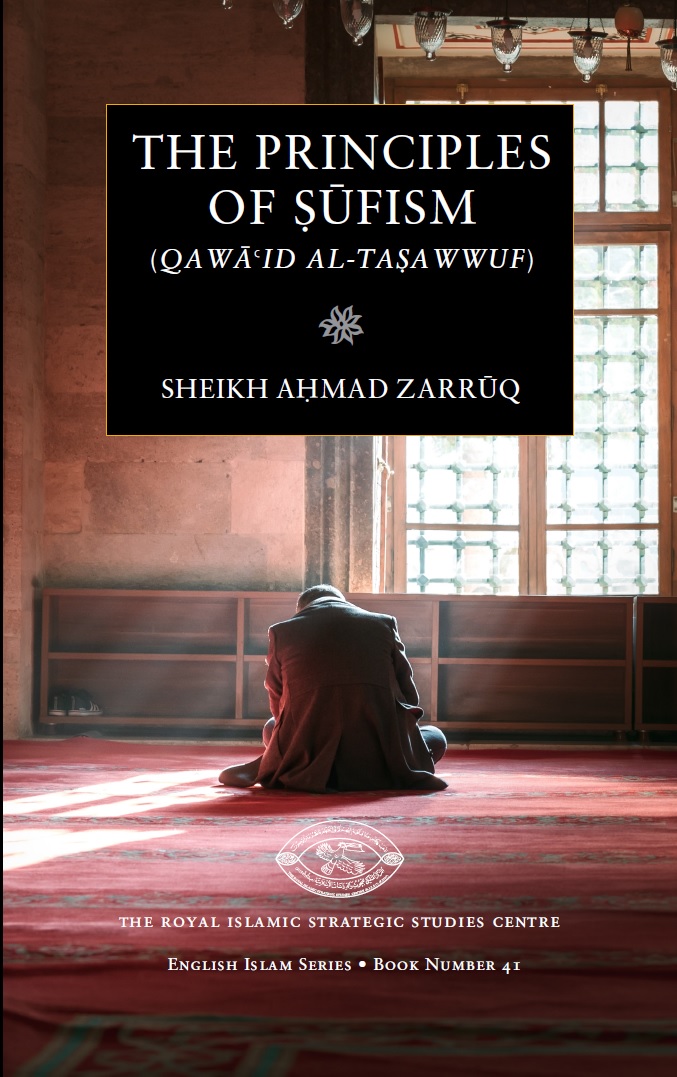
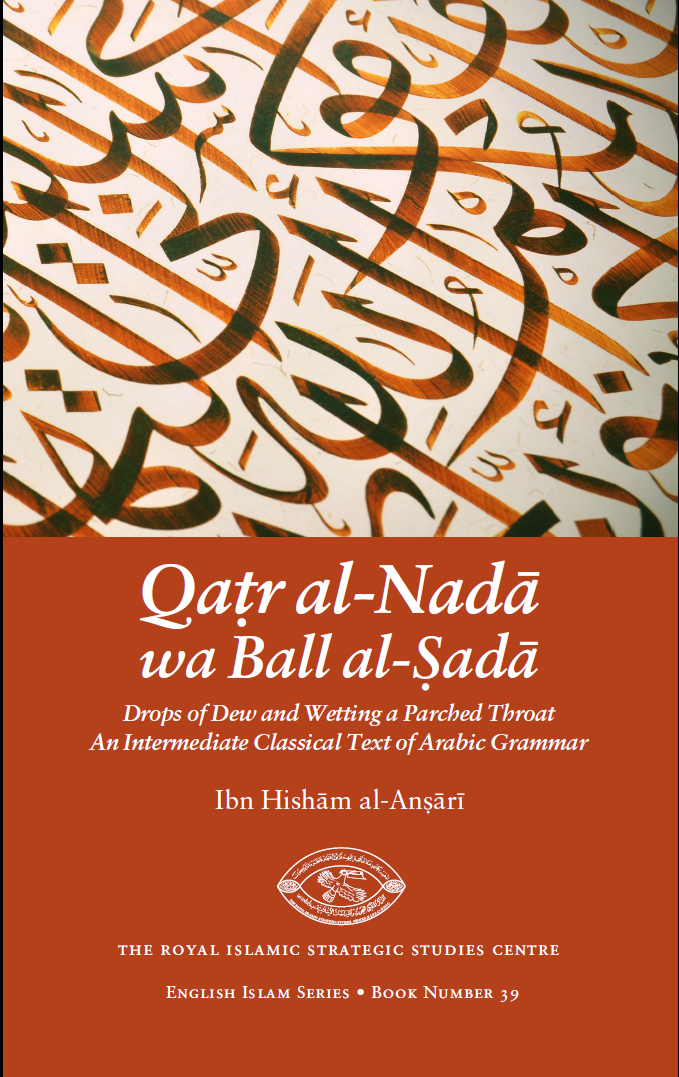
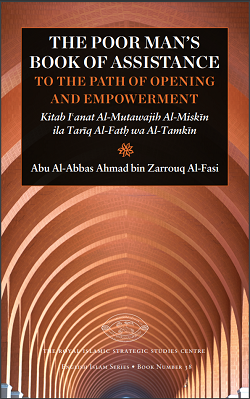
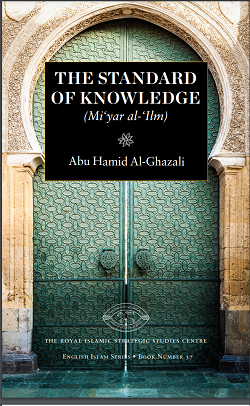
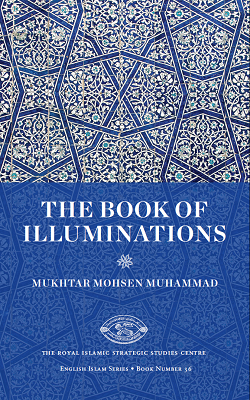
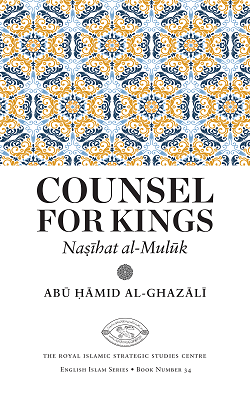
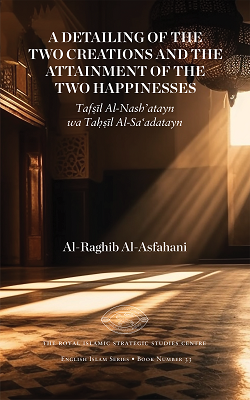
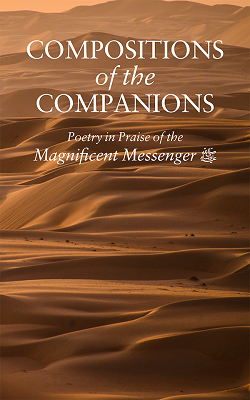
![OrnamentsofGatherings_EnglishArabic_BookSingles_05-06-23[63]_Page_001](https://rissc.jo/wp-content/uploads/2023/06/OrnamentsofGatherings_EnglishArabic_BookSingles_05-06-2363_Page_001-scaled.jpg)
